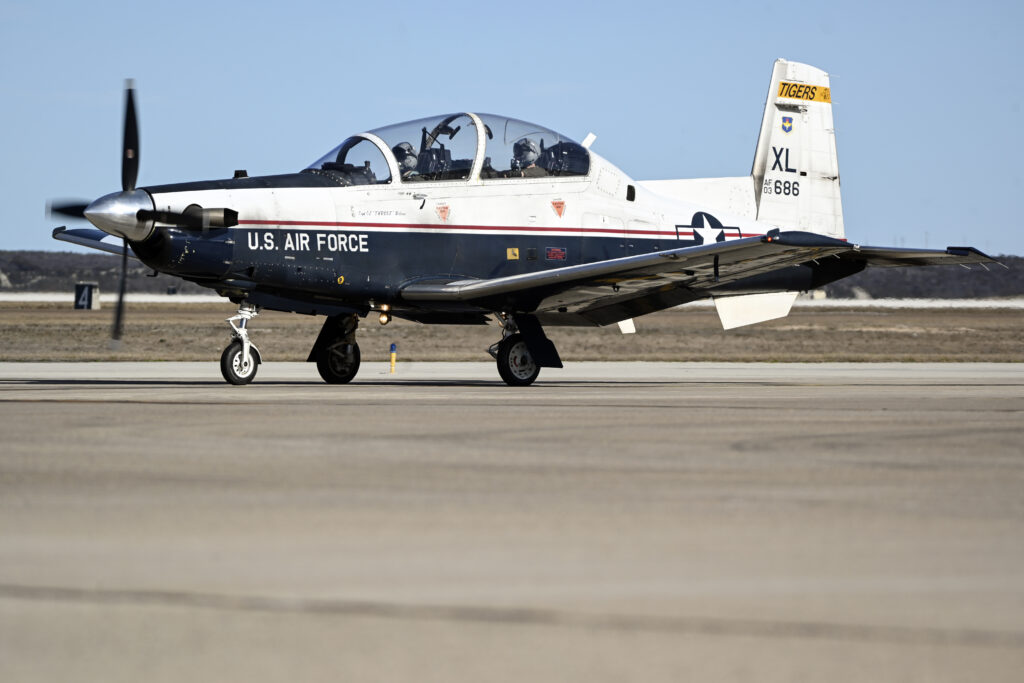An Air Force instructor pilot was killed when the ejection seat activated while the turboprop aircraft was still on the ground at a Texas military base, the Air Force said Tuesday.
The instructor pilot was in a T-6A Texan II at Sheppard Air Force Base in Wichita Falls, Texas, when the seat activated during ground operations on Monday. The pilot was taken to a hospital and died Tuesday, the Air Force said. The pilot’s name was being withheld pending notification of next of kin.
The T-6A Texan II is a single-engine two-seater aircraft that serves as a primary trainer for Air Force, Navy and Marine Corps pilots. In a training flight an instructor can sit in the front or back seat; both have lightweight Martin-Baker ejection seats that are activated by a handle on the seat.
In 2022, the T-6 fleet and hundreds of other Air Force, Navy and Marine Corps aircraft were grounded after inspections revealed a potential defect with one component of the ejection seat’s cartridge actuated devices, or CADs. The fleet was inspected and in some instances the CADs were replaced.
When activated the cartridge explodes and starts the ejection sequence.
Ejection seats have been credited with saving pilots’ lives, but they also have failed at critical moments in aircraft accidents. Investigators identified ejection seat failure as a partial cause of an F-16 crash that killed 1st Lt. David Schmitz, 32, in June 2020.
In 2018, four members of a B-1 bomber crew earned the Distinguished Flying Cross when, with their aircraft on fire, they discovered one of the four ejection seats was indicating failure. Instead of bailing out, all of the crew decided to remain in the burning aircraft and land it so they all would have the best chance of surviving. All of the crew survived.
(AP)












One Response
This article feels like deja vu all over again! This story is a week old, and you reported it last week as well! It’s not a new story, just chazorah of the old one. Is it going to appear next week as well?